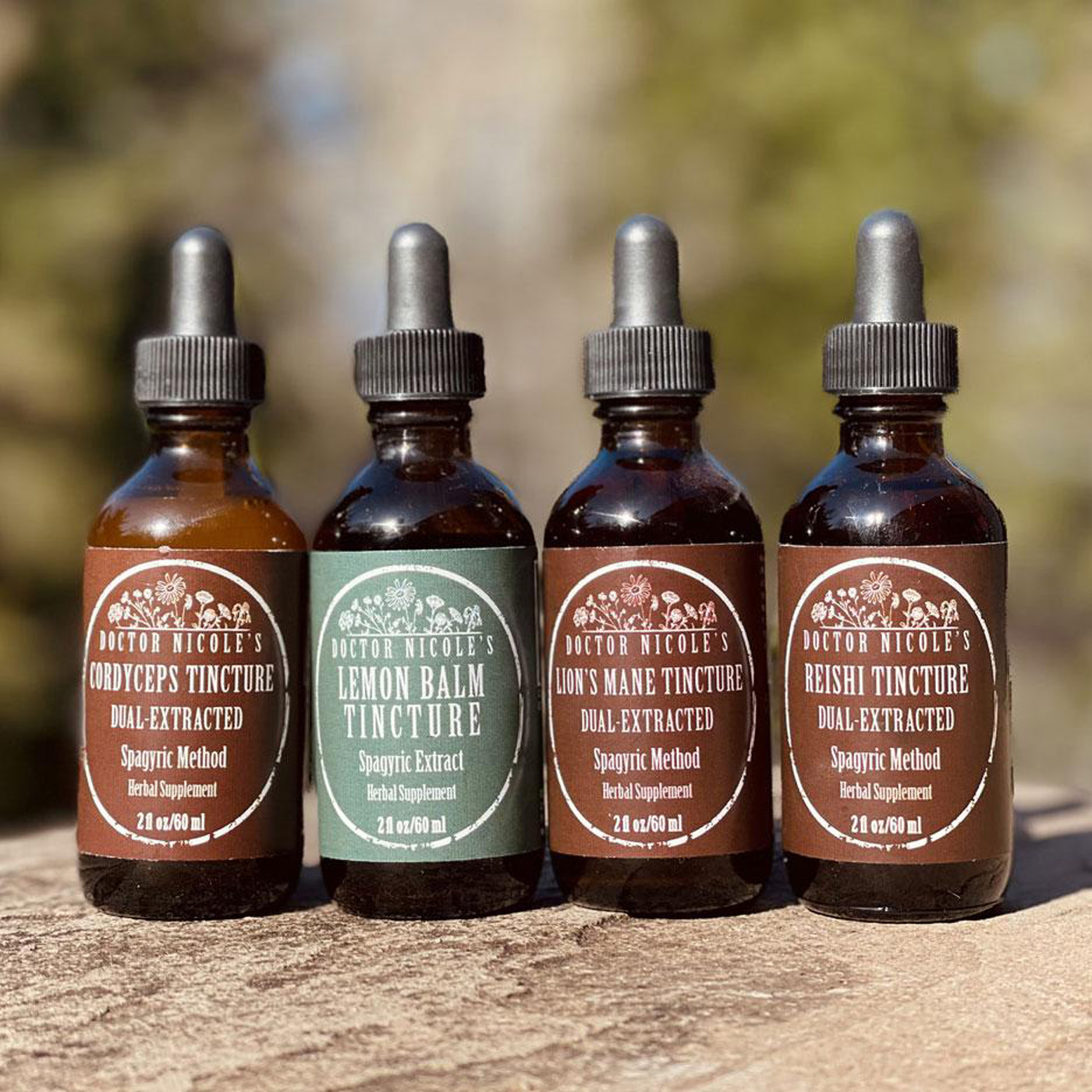How Food Choices Impact Cognitive Health
Plant-heavy diets have become exceedingly popular over the last several years for those who want to improve health, lose excess weight, and avoid or treat conditions like diabetes and heart disease.8 A recent study adds another benefit to the list: cognitive health.1 This comprehensive review examined which diet is most likely to promote Alzheimer’s — and the one that is most protective. For the study, researchers compared four different dietary patterns: Western, Mediterranean, DASH, and MIND diets. Here we will look at each type and why those that incorporate more plant foods come out on top.
Standard Western Diet
Known for foods that are high in calories, yet low in nutritional value, the Western diet emphasizes fast foods, soft drinks, and processed foods that are high in sugar, fat, and salt. Typically it includes large amounts of red meat. It is often referred to as a Standard American Diet or SAD.
Mediterranean Diet
With this diet, the focus is on grains, legumes, vegetables, fruit, nuts, and fish with conservative amounts of meat, eggs, dairy, and red wine.
DASH Diet
Otherwise known as the Dietary Approaches to Stop Hypertension Diet, it is similar to the Mediterranean with one exception: it encourages eating low-fat dairy products.
Mediterranean-DASH Intervention for Neurodegenerative Delay (MIND) Diet
Developed specifically to reduce dementia and the loss of cognitive function as you age, this diet is a combination of the Mediterranean and DASH diets. While both the Mediterranean and DASH encourage consuming fruit, the MIND diet focuses only on berries to support cognitive health.2
Here are the 10 essential foods recommended for the diet:
- Green, leafy vegetables (6 or more servings/week)
- All other vegetables (at least once per day)
- Berries (twice per week minimum)
- Nuts (5 or more servings per week)
- Olive oil (as your main cooking oil)
- Whole grains (three servings per day)
- Fish (once per week minimum)
- Beans (at least four times a week)
- Poultry (twice per week minimum)
- Wine (no more than one glass daily; both red and white wine)
Foods to avoid: butter and margarine, cheese, red meat, fried food, pastries, and sweets.

Which Diet is Best for Your Brain?
Not surprisingly, the standard Western diet is at the bottom of the list for brain health. The team noted “[t]he most important dietary risk factors appear to be meat, especially red and processed meat” in relation to cognitive health and increasing the risk of dementia and Alzheimer’s.1 Why? Because red meat is linked with inflammation, hyperinsulinemia, oxidative stress, advanced glycation end products (AGEs)7, dysbiosis of the gut microbiome, endotoxins, and trimethylamine oxide (TMAO) — a toxic substance created in the body when animal products are digested. All these factors have been associated with the development of Alzheimer’s disease.
On the flip side, a plant-heavy diet was shown to be the most protective. Due to this, the DASH and MIND diets came out on top since they both focus on a high consumption of fruits, legumes, nuts, omega-3 fatty acids, vegetables, and whole grains.
Even so, there is one diet that surpasses both in supporting cognitive health and reducing the risk of Alzheimer’s according to the researchers: a whole-food, 100% plant-based diet supplemented with vitamin B-12 and essential fatty acids. The team concludes:
“… a healthful, whole plant–based diet appears to yield the greatest risk reduction. T2DM [type II diabetes mellitus] shares many dietary risk factors as AD and is considered a risk factor for AD. T2DM can be reversed through a whole-food vegan diet with supplementation and enough essential FAs.”

Using Medicinal Herbs to Improve Brain Health
Dual-extracted, fruiting body tinctures of cordyceps, lion’s mane, and reishi medicinal mushrooms, along with lemon balm extract are known to support brain health and each are an outstanding complement to a diet rich in plants.
These 3 mushrooms have unique, research-backed benefits that include: lowering neuroinflammation; stimulating Nerve Growth Factor (NGF) to repair damaged nerve cells in the spinal cord and brain; boosting cognitive function; reducing the symptoms of Alzheimer’s, dementia, and Parkinson’s 3,4,5; limiting neuronal cell death, enhancing memory, calming stress, combating fatigue, and boosting energy.
Lemon Balm is associated with improvements in memory, mood, and age-related cognitive performance, a reduction in stress and anxiety, and improved clarity and focus. It is an antioxidant, helping to protect nerves and reduces inflammation. This medicinal herb also inhibits the brain’s levels of acetylcholinesterase (AChE), an enzyme that helps break down acetylcholine (Ach), a critical neurotransmitter involved in cognition and memory; reduced levels of acetylcholine have been associated with Dementia, Parkinson’s, and Alzheimer’s.6
Each is found in my Brain Bundle in the apothecary.
THESE TINCTURES REPLACED MY ADDERALL
This Brain Bundle is amazing! For a while now I have been wanting to stop taking Adderall for my ADHD, but having gone back to college as an older student has made me hesitant for fear of eventual declining grades. As a firm believer in the power of medicinal plants, I took a leap and tried the Brain Bundle mushroom tinctures that include the Lemon Balm.
A week later I weaned myself off of my Adderall to see how I could function with only the tinctures, and now, nearly two months later I am amazed at the results! The characteristic brain fog did not return, my memory seems to be functioning better than ever, my recall has been at the top of its game lately, and as a plus I’ve noticed that my anxiety level has been at an all-time low. I HIGHLY recommend everyone try them – you won’t be sorry!” -Kelly H.
Are you ready to improve cognitive health and reduce the risk of Alzheimer’s and dementia? Visit my apothecary today to learn more about how our powerful natural remedies can help!
Nicole Apelian
Nicole’s Apothecary Products in this Post
References
- Grant, William B. and Blake, Steven M. ‘Diet’s Role in Modifying Risk of Alzheimer’s Disease: History and Present Understanding’. 1 Jan. 2023 : 1353 – 1382.
- “The MIND Diet: A Detailed Guide for Beginners” by Keith Pearson, PhD, RD — medically reviewed by Amy Richter, RD, Healthline, April 21, 2023. https://www.healthline.com/nutrition/mind-diet
- Mori, K., Obara, Y., Moriya, T., Inatomi, S., & Nakahata, N. (2011). Effects of Hericium erinaceus on amyloid β(25-35) peptide-induced learning and memory deficits in mice. Biomedical research (Tokyo, Japan), 32(1), 67–72. https://doi.org/10.2220/biomedres.32.67
- Tsai-Teng, T., Chin-Chu, C., Li-Ya, L., Wan-Ping, C., Chung-Kuang, L., Chien-Chang, S., Chi-Ying, H. F., Chien-Chih, C., & Shiao, Y. J. (2016). Erinacine A-enriched Hericium erinaceus mycelium ameliorates Alzheimer’s disease-related pathologies in APPswe/PS1dE9 transgenic mice. Journal of biomedical science, 23(1), 49. https://doi.org/10.1186/s12929-016-0266-z
- Zhang, J., An, S., Hu, W., Teng, M., Wang, X., Qu, Y., Liu, Y., Yuan, Y., & Wang, D. (2016). The Neuroprotective Properties of Hericium erinaceus in Glutamate-Damaged Differentiated PC12 Cells and an Alzheimer’s Disease Mouse Model. International journal of molecular sciences, 17(11), 1810. https://doi.org/10.3390/ijms17111810
- “What to know about acetylcholine” by Alina Sharon — medically reviewed by Angelica Balingit, MD, Medical News Today, August 25, 2023
- “What Are Advanced Glycation End Products (AGEs)?” By Mary Jane Brown, PhD, RD, Healthline, October 22, 2019. https://www.healthline.com/nutrition/advanced-glycation-end-products
- “Whole-Foods, Plant-Based Diet: A Detailed Beginner’s Guide” Medically reviewed by Amy Richter, RD, Nutrition — By Jillian Kubala, MS, RD, Healthline, May 2, 2023. https://www.healthline.com/nutrition/plant-based-diet-guide





